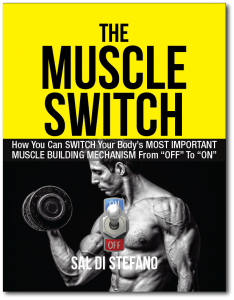Most of us intuitively know that when an individual becomes more fit, their improved energy and health can contribute to clearer thinking and increased mental performance.
But did you know exercise can fundamentally change your brain and make you smarter? Let’s examine the science…
A recent study done at The University at Texas, Dallas shows a clear and positive relationship between physical aerobic activity and cognition among adults over the age of 50. The study concluded: “that even shorter term aerobic exercise can facilitate neuroplasticity to reduce both the biological and cognitive consequences of aging to benefit brain health in sedentary adults.”
In other words, neuroplasticity, also known as brain plasticity, is the brain’s ability to learn, adapt and change and this study shows that even a small amount of aerobic exercise helps keep your brain young and flexible.
Ok, so what about creativity? Can exercise improve your ability to think abstractly? Numerous studies have, in fact, examined this very question and the consensus is clear…exercise does improve creativity.
In a 2005 study of 63 college students published in the Creativity Research Journal, students who did moderate exercise and then immediately took the Torrance Test of Creative Thinking, a widely used test that measures creative abilities, scored the highest. A group that did not exercise scored the lowest.
Christopher Bergland writes in Psychology Today that “Sweat is like WD-40 for your mind-–it lubricates the rusty hinges of your brain and makes your thinking more fluid. Exercise allows your conscious mind to access fresh ideas that are buried in the subconscious.”
This may be why writers, artists and musicians often seek out activity when they feel blocked or stuck. Even Albert Einstein used exercise to spark his imagination. He said of the theory of relativity, “I thought of it while riding my bicycle.”
Now let’s talk about hormones and your brain. Countless studies have shown that a good hormone profile will make you feel better, think better and perform better. Immediately post resistance training, both men and women enjoy a spike in growth hormone and testosterone. These hormones are “feel good” hormones that not only create a more favorable fat burning and muscle building environment, they also lower baseline levels of stress hormones. Studies have shown that elevated levels of the stress hormone cortisol adversely affect memory and the ability to think clearly.
The positive benefits of exercise can only be achieved with an effective and appropriate fitness routine. A common mistake people make with their exercise regimen is the improper application of exercises, intensity, duration or even frequency which leads to a burned out central nervous system, lowered energy, decreased anabolic hormones and elevated levels of cortisol.
As I wrote in my recent post, The “No Pain, No Gain” Fallacy, popular high intensity workouts are leaving people depleted and impeding their progress. If your workouts are leaving you feeling exhausted and weak, then expect your mental performance to suffer as well. Do yourself a favor, seek out a more sensible workout regimen. Not only will your muscle and fitness gains accelerate, you will enjoy the benefits of improved neuroplasticity and sharper thinking.
References
http://www.ncbi.nlm.nih.gov/pubmed/24282403
http://www.tandfonline.com/loi/hcrj20#.U98H9YBkHsT
http://www.psychologytoday.com/blog/the-athletes-way/201202/the-neuroscience-imagination
http://www.healthiertalk.com/beat-hidden-cause-brain-fog-3848

